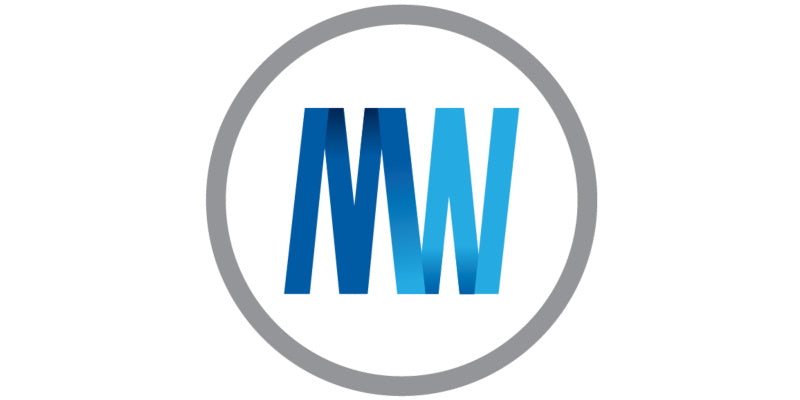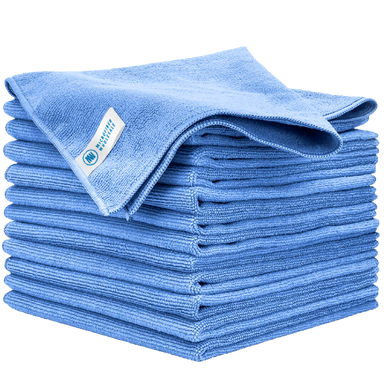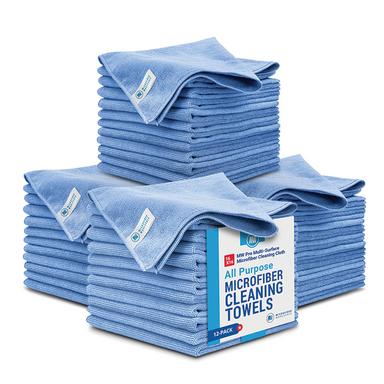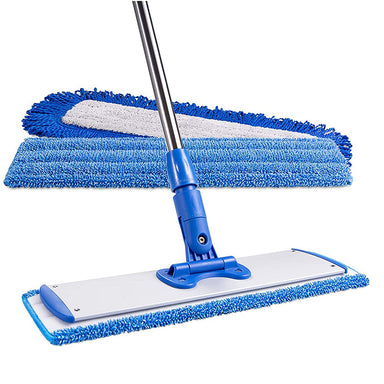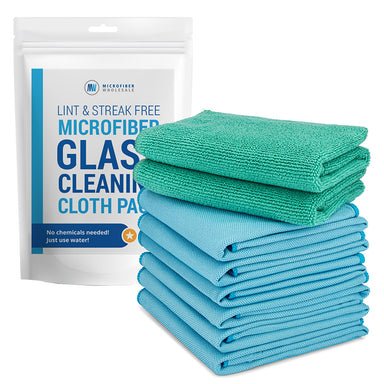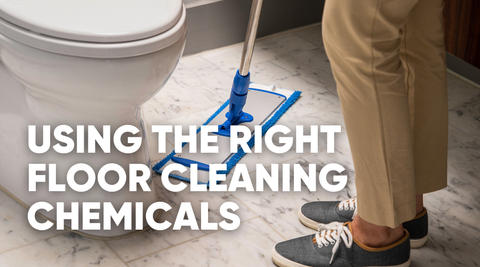Listen to this Show and Learn:
- How Melissa dramatically improved the hiring process with one simple change.
- Why you should treat employees just like you treat customers.
- The two game changing strategies for cleaning a home.
- How “the cleaning spiral” makes cleaning easier and more fun.
- The exact types and ways Maid Pro uses Microfiber.
Mentions:
Waffle Weave 16×24
Terry Weave 16×16
Wet Glide Microfiber Mop
Flexible Duster
Transcription:
[Hey, there. Welcome to the MicroFiber Wholesale show where we talk with cleaning professionals about how to better run and grow your cleaning business. To learn more about who we are and what we do, visit us at microfiberwholesale.com.]
Host: I’m here today with Melissa from MaidPro. So, Melissa, how are you?
Melissa: I’m doing well. Thank you so much for having me.
Host: Well, we’re happy to have you on the show. So I’ll start and let you just introduce yourself and tell us a little bit about your professional background and then your role with MaidPro now.
Melissa: Gladly. I have been in the cleaning industry almost 20 years now. My introduction to the industry was that I worked as a commercial chemical salesperson for Procter & Gamble for—I think it’s almost nine years in total between internships and full time work, working with a wide variety of large commercial chemical users, usually contract cleaning of chains as well as distributorships and getting a lot of real hands-on learning, becoming the troubleshooter for those companies for years. You get called in the middle of the night of, “Oh goodness, we’re trying to take over this new mall and there’s something terrible going on with the elevators. How do we get it turned off?” Things like that. So it was a lot of infield learning for years and then that’s actually what brought me to my current career which is working for MaidPro.
I am their chief cleaning officer. My role within the franchise is the subject matter expert in our actual end product with cleaning homes. My research, all of our chemical choices, equipment choices, making sure we’re treating our employees properly in terms of safety and training procedures, develop all of our training materials and things of that nature. And then I also spend a lot of my time coaching off these individuals on challenges they face. So I get calls across the country with, “Gee, this customer has hard water on their glass door and it won’t come off. We’ve tried everything. What do you suggest?” “Oh, we scratched a stainless steel of fridge over in this state. How do we fix it?” Stuff like that.
So I call my position part research, part research and part McGuyver. I’ve been with MaidPro for 10 years now. I worked a lot, not only consulted a franchise use in the business in general but now, we should be focusing on the cleaning aspect of this business. And here I am.
Host: I’m going to start you out with the tough questions so it doesn’t get too easy for you. Since you’ve been in MaidPro, what is the biggest mistake you’ve made? What’s been the big lesson you’ve taken away over the last 10 years?
Melissa: The biggest mistake I’ve learned. Ouch! All right. So I’ll make myself look bad right away. I can do that [laughter]. I think the biggest mistake I’ve made is thinking that what’s obvious to me is obvious to everybody. The initial stages of my working within this organization, together we have—at MaidPro at least, we have over 180 something locations across the U.S. and Canada which means 180 something different personalities, commercial histories, ways of approaching and looking at problems and understanding that within this role, within this company that you really have to allow people to come to their own conclusions about the solution to something.
You can’t just say, “Hey, I’ve done the research and the answer is X,” because there’s no good reason for them to just take you on the face. You need to make sure that you’re giving them the ability to take videos, testing things side by side or presented them the different choices and let them go, “Oh yeah, you have done your homework. That makes sense to me. I get it.”
Some people, that’s how they put it as an emotional choice. Some of them, they need data and numbers. Some, data and numbers overwhelm them but you have to give them those tools to embrace it themselves. Because as a franchisor, if it’s average or just a “Here’s the top down, we tell you what to do” answer, it will never feel good even if it’s the right answer, even if it’s working. They’re not going to be happy.
You have to make sure that you’ve gotten their buy-in, that you’ve helped them emotionally come to the conclusion that this is the right choice and that is what drives their satisfaction with the solutions we’re giving them. Even if it’s the same correct answer, taking that extra time to sell everybody on it—and not just sell them. It’s not the old razzle dazzle, but actually, making them see what you’re doing and believe in it and conquer their own conclusion that yeah, this is the right way to go. It makes a huge difference in adoption and satisfaction with whatever it is that hopefully I’ve researched for them in terms of solutions.
My big mistake in the beginning was not getting that process, trying too hard to just say, here’s the idea. I’ve since learned and gotten a lot better and happier franchisees as I’ve learned to help them kind of do the research with me, as it were.
Host: Yeah, I totally resonate with what you’re saying. That’s definitely a lesson I learned when I started managing people and working with people. You’re probably a better salesman or saleswoman than I am. Oftentimes, the way I solve is I just kind of, “I don’t think that’s going to work but if you want to try it, go for it,” and then usually once it doesn’t work out, they’ll come back and they’re a lot more interested in hearing what your opinion is than if you just kind of dictated it from the get-go.
Melissa: [Laughter] That’s true.
Host: What’s been the biggest success? What would you say is one of the bigger breakthroughs you’ve had at MaidPro?
Melissa: Let’s see. I think for me, one of the greatest successes I’m very proud of currently, actually isn’t quite directly in cleaning. Well it is and it isn’t. I very much am of the belief that my role as subject matter expert on the actual cleaning of the home makes me as much in charge of our employee as it is of our chemicals and products. We call our cleaning staff at MaidPro pros, as professionals. And so I just want to make sure I clarify that so when I’m talking about pros, you know what I mean.
I believe our pros are our end product. The quality of our staff, the pride they take in their work, their professionalism is what sets MaidPro apart. As much as I love all the soap and equipment that I found for them, quite frankly, I can load them up with the crappiest stuff at the Dollar Store and the right employee with the right work ethic and the right pride in her work will make a beautiful clean regardless of what under equipments you’ve given them.
So I’ve made a focus in my work to helping develop our staff, both in their professional training and motivating them and also recruiting the best we can find. So I’ve kind of recently taken on some of our marketing department’s work and working on our employee recruitment marketing. Basically, we hashed the way we’ve advertised to our employees in Craigslist, working with our hiring department. We’ve seen a huge explosion in the number of applicants coming in to MaidPro as a result of it.
I’m very proud of that work because it’s changed a lot of our locations’ abilities and be even pickier with our staff. In this industry, I’m sure you’ve heard it; the cleaning industry average turnover is some 300 percent. In residential cleaning, it’s outrageous, the number of employees that a local cleaning company will usually go through than that. The chaos of that turnover is grinding on the business itself. It’s also grinding on the customer so being able to be pickier and pick that rockstar employee that really is going to stick, they’re going to provide that level of professionalism that our customers kind of expect from MaidPro.
It changes everything. It changes the complexity of the cleaning that I can present to them. I can give them more challenging products to work with, ones that are—require more expertise and training and trust that they’ll be able to do it so that we can have high caliber of cleaner whereas if we have shortage of recruits, then you’re trying to gun down everything to who might commit and I want to choose beginning on that. So far, it looks like we can start, in which I’m really proud of.
We’d always done that organically but it took a lot of work for our franchisees of just constantly putting out tear sheets and billboards and recruiting through the staff and just trying everywhere they could to find more recruits, to find those diamonds in the rough. What we’ve been able to do recently in terms of employment recruitment has kind of changed the power dynamic where they really feel like, “Gee, there’s a ton of people coming in and I can really be picky.” It’s not that “desperately scrounging for employees” anymore situation which is just great.
Host: Of the changes you’ve made to the hiring process, what are one or two that have been the highest impact? What’s really helped increase the quality and the quantity of people you have coming in?
Melissa: You’ll laugh, but sometimes it’s the littlest—say again?
Host: Yeah, in terms of the hiring process. So you said like you’ve been able to kind of institute this new process where you’re having… where a lot more people apply and a lot more qualified people apply and I’m just curious what the keys are there.
Melissa: Yes. Okay, in terms of our being able to turn the page on our employee recruitment, the biggest thing was remodeling our employee advertising particularly through Craigslist. In this industry, Craigslist is, at least for us, the number one driver of new recruitment. Everyone that’s looking for hourly work is on Craigslist. You have to be on their heavily advertising, often posting your ad nearly several times a week ideally to keep you fresh and on top of that list.
Basically, we remodeled the advertisement. We took the time to focus the language on the benefits to the employee. We changed the status in HTML format and Craigslist allowed the ads to just look like a bunch of texts thrown up there by somebody in five minutes in the way it goes. We wanted ours to actually look like a professional ad, with a clear “Here, Apply Now” type of button and it’s really helped make our ads stand out and we conveyed the level of professionalism that we as a company are expecting and providing.
A lot of cleaners do feel very much like they’re not treated or expected to be professionals. They’re not respected as professionals. Having the advertising really approach them as the tradesmen that they are and treating them as such seems to have really resonated with our recruiting base and getting the fact that this is something that is providing an entry level cleaning job that treats and hires and pays for and gives them benefits in the way that most people expect of–much more, I guess–white-collar type positions and treats them as professional tradesmen as the way you would interact with an electrician or a plumber, not just oh, “You’re just a maid.” Getting away from that mindset really stands out to our employee base and they understand that in MaidPro, we are really going to treat them differently and we respect them differently. It seems to have caused a lot more applicants, so it’s working. [laughter]
Host: Well, congratulations. That’s one mistake I’ve seen other people make, that is to your point, you said working with marketing on the hiring process as people don’t view hiring as a marketing activity when it really is.
Melissa: Absolutely.
Host: You’d like to be able to recruit the best people you have to choose as a piece of your marketing.
Melissa: I couldn’t agree more.
Host: And getting the best people will result in–it does the marketing for you. They come in. They provide a better service that pays dividends down the road.
Melissa: Well, in particular, one of the bigger mistakes I’ve seen in this industry–and our office can also be guilty as charged–is, as far as I’m concerned, the employees and the customers are to be treated the same way over that same sort of TLC that you’d treat your end consumer, you should be treating your recruitment and cleaning staff.
A lot of companies get into this mindset that, “Oh, we’ll turn on the graciousness and the charm and the focus of their attention when the customer calls or customer walks in the office,” but when it’s just “one of the cleaners” or that mindset or just the applicant, it’s that blow off, kind of, “oh yeah, I can treat them however” type of attitude. That I don’t blame the cleaning crews around the country resenting. It amazes me, the treatment that is often given to these incredibly hardworking women in this industry.
I tried to train our MaidPros to make it different. We’ve called ourselves the MaidPro family and it’s better done when we feel that way. A lot of them really get that and embrace that to heart. When a new employee or recruit walks into the door, they get that same, “Please hold on the phone. Let me come go help this person. First, focus. Let me come up. Get up off my desk and shake your hand, offer you water, take care of you” graciousness that the customer is expecting when they walk through the front door. Whereas a lot of companies say, “Oh yeah, there’s a new application on the table. I’ll get to you in a few minutes” in the back and front of the customer because that’s what they treat as their top priority. It’s that blow off that really stings so much from these incredibly hardworking group of women and I want to make that something that’s different than our MaidPros and it really is.
Host: Yeah, that’s a great point and that’s something people can really relate to. I know I’ve been to job interviews where it’s been that scenario, like you’re kind of an afterthought. It’s like, well, this is the company I’m really excited to work for.
Melissa: Yeah, and nothing upsets me more than–we can always shop our competition to see how they’re treating the staff as well as the customers. I’m calling them for a clean job. The first response is all of this, “Well, do you have this? Do you have this? Are you legal? Are you that?” Whatever. It’s like an attack almost. It floors me. It’s like, this person–you’re hoping someday you can be a rockstar employee that’s going to be on a snowy, miserable day that’s going out to then lift and scrape for you and you’re going to treat them this way. Hello? Uh-uh. At least not in MaidPro.
I’m passionate about training our MaidPro owners to flip that mindset and understand that our employees come first. Our MaidPro family comes first. If you’re good to your staff and treat them like family and help them grow as professionals, the customers will come because the customers will be able to see that our employees conduct themselves differently because they feel pride in their work and they feel appreciated and respected. If you can get that part right, everything flows from that and treating them as this sort of commodity is I think what kills so many small businesses.
They’ve gotten so bitter or cynical and presuming that the staff is going to be challenging or not able to act as professionals. They believe it’s how they make it for themselves. They treat everyone that way so only the people that are willing to tolerate being treated that way, they’re the ones that stay and work for them. And so they are surrounded by the very people they dreaded and presumed would show up and they made it that way for themselves.
Host: Absolutely. Let me pivot you, Melissa, towards something else that I suspect you’re passionate about, certainly very knowledgeable about. Is there a specific strategy or method for cleaning a home that you have found to be superior? Do you start in a specific spot? Do you go room by room? Do you go cleaning tool by cleaning tool?
Melissa: Great question. Of course, I would gladly geek out on cleaning for as long as you let me. I will say that for me, what I found to be the most important pieces of cleaning isn’t as much as the specific techniques on each surface so much as your strategic approach to the property itself. What I mean by that is, at MaidPro, we clean each house in the same order based on trying to manage cross-contamination and as well as manage employee stamina and energy.
So we start cleaning in the kitchen then we go to the bathrooms followed by the living areas on that level. If you’re envisioning a standard colonial home, you’d march in and clean the kitchen first. Go upstairs and hit the master bathroom, any remaining bathroom. Do a better job in that area. Hit the hallway on the way down. Go hit the lower levels, their bathrooms, their first, their living areas then back to main area working the living areas out.
It sounds a bizarre order but the reason for it is our number one risk as a professional company is bringing illness from home to home. A lot of smaller businesses and independent maids don’t think about it but they can be patient zero for quite a large population if they’re not careful.
We color code our supplies. We use separate wash and even the soap is washed and fresh for each customer. We have separate color coded supplies so that our employees can never make the mistake of accidentally wiping down your dining table with a rag that was used in the bathroom or anything of that nature and again, a lot of other companies just don’t. They prefer either employees or staff to help them do that and avoid that risk. But the cleaning order actually forces that issue.
The most dangerous thing we could do is take germs from the bathroom area and bring it into the customer’s living room—I’m sorry, into the kitchen. So we clean that kitchen first so that we can’t cross-contaminate it. We’re also doing the bathrooms first and then switching color coded supplies so that it’s very clear and obvious. We’ve finished our wipe cleaning. We’re now into bedrooms and dining rooms and what-have-you with the new colored supplies so that again, the employee can’t make the mistake of accidentally contaminating food and surfaces.
It also manages our employees’ energy. The most challenging part of a clean is that kitchen and bathroom deep scrub work. If you accidentally leave a bathroom to the end of a five or six-hour day of cleaning, good luck! There’s no way you’re doing quality work. Doing that during the first couple of hours of the clean when your body still can handle it is critical to getting that deep clean that we want to provide our customer.
So we’ve approached the house with a very specific order. We also approached each role or device in a specific order. We clean in something we call our cleaning spiral where you’re following your dominant hand around the property. So if I were a right-handed person, I’ll march into a room, find the closest left hand top corner and then cleaning around the room in a spiral down, down, down each layer until I cleaned the baseboard floor and then leave the room.
This allows us to work with gravity so that all the dirt has been driven down to the ground rather than—you have seen that classic mistake where everyone’s trying to clean the counters by sweeping the crumbs into their hands because they’re worried about getting it on the floor and then they forget, oh the ceiling fan. They just mopped the floors and now they’re trying to clean the ceiling fan and all the dust is getting on the floor, they just mopped. All those sort of crazy decisions come from not cleaning in that spiral.
It slows you down. It means a lot of recleaning the same surfaces twice or transferring splatter from one surface to another. On that spiral, it really controls how much dirt can get out of that room. It also allows our employees to not have to think so much on what they’re cleaning. They just know, “It’s under my hand. I cleaned it as I’m moving around.” That allows them to think the big picture. They’re able to clean that room instead of thinking about, “Oh, what do I need to dust next?”
They’re able to look around them going, “Oh, this family had young children. Wouldn’t it be adorable if I took some extra time to take the toys in their bedroom and make them have a little fight scene for the kid to come home to? Wouldn’t that be sweet?” Or, “Gee, this customer loves coffee. Let me pick out their coffee cup and spoon and put it by the coffeemaker for tomorrow morning.”
That sort of stuff, they’re never going to have the chance to think about or notice if they kind of forget what they did or didn’t clean, what’s clean, what’s dirty, what’s shiny, what’s not. By cleaning in that spiral, they don’t have to think about it. They know that every time we’ve cleaned a home, every surface they can tolerate has been wet-cleaned with a rag and Microfiber rag and cleaner and the customer can be confident that every surface has been touched and cleaned. We don’t have to think about, is it shiny? Is it not? Is it dirty? Is it not? They can think big picture about how to make this home beautiful for the customer.
Host: That’s terrific information. I’d never thought about the—because the process is so clearly defined. They get to think about the specific things like leaving the coffee cup out. Now, those are the kind of things that as a customer makes you feel like really special. I mean, it’s a very, very small thing in terms of time and effort for someone to do but it makes a huge impact.
Melissa: Absolutely. That’s something we call the MaidPro Wow Factor. We specify with our employees: Thou shalt not leave a room unless you’ve done three things to that room to make it feel loved and cared for. We care as we clean, that is one of our mottos. Like you said, sometimes, it takes moments.
Little things like you can take a box of facial tissue, pull a couple of tissues out, pinch them so they’re little flowers and tuck them back into the tissue box and then just fill it with flowers. It takes two seconds to do. It looks adorable. But the key there is when the customer comes home, they go, “Wow! My bathroom looks like a hotel. I may really not have much money. My kids will destroy this house in 20 minutes, but for right now, I feel like my house is beautiful.” And that means something to them.
We, in our employees, we encourage the creativity. They do so many wonderful things for our customers and I encourage them to take pictures and send it in to us so we can help them make brag boards locally and win awards on a nationwide scale for who does the cutest stuff. Some of the things they come up with are just phenomenal. It’s not about the time. It’s about the creativity and the caring and the noticing what that means something to that customer.
I had one employee who do knock-knock jokes and little kid jokes to one of the families that has small children and that she cleans for because the kid had a blackboard in her bedroom. She just started writing—first, she started writing “hello” and “Hope you had a good day,” and she saw the kid, what the age of the kid was and started writing little jokes. It became a thing where that child would insist, mom and dad’s at home, I’m excited. It’s about getting home to see what her joke was on MaidPro day. That’s the sort of connections we want to build with our customers. It’s not about the time. It’s about the “I noticed this as I’m cleaning who lives here and what means something to them.” We really try to encourage that.
Host: Those are fantastic stories. Thank you for sharing those. I like those a lot. Let me jump in and get a little more specific. I’m curious how you use Microfiber in general, specifically mops and towels, which pieces you use, and how you find—how you use them most effectively.
Melissa: Okay, gladly. We use a lot of Microfiber so there’s a nice little list. Pretty much, we clean every surface we can with Microfiber. Microfiber really is your gold standard for cleaning materials. Whoever is still using cotton at a hotel, I just don’t understand why. The amount of dirt removal you’re able to get and the amount of shine you’re able to leave and lack of lint, it’s just… there’s nothing that compares to the quality of Microfiber as far as I’m concerned.
And so we use color coded Microfiber rags to wipe down every surface that we can. We particularly use the Waffle Weaves, big 16 x 24 size cloth for our kitchens and bathrooms and we use the Terry Weaves, 16 x 16 type cloths for our light dusting in general areas. We found that the Waffle Weave Microfiber is—all Microfiber scrubbers can pull a lot of dirt but that Waffle Weave really give you that extra scrub for really mucky dirty things in the kitchen and the bathroom and that matters for us so that’s why we use it.
The Terry Weave glides over things faster and easier for dusting. It doesn’t snag and what-have-you so that we find that that’s excellent for doing all the furniture and the wood and glass, et cetera. We’re using that for I’d say a majority of our major cleaning tasks. For floor, we also use a Wet Glide Microfiber Mop Pad. We actually had Microfiber wholesale make a specific size one for us because we have a particular mop size that we think is ideal for residential cleaning. The Wet Glide Microfiber on the floor is a must if you want shiny wood floors or shiny marble floors, any floor, that dark stain in wood that is just vicious. It’s showing every last smear. Microfiber makes a huge difference in giving you that shine and we find it does a wonderful job.
We also use something called the Flexible Duster which is basically this long, bendy thin metal wand with foam and then Microfiberfingered fabric over it. This is a big long sword looking thing that can be bent into any shape you want and we use that to dust everything that we can’t actually hand wipe. As a company, we focus on “If you can reach it, really clean it.” So any collectibles, any picture frames, anything that’s within the arm’s reach, we want to have actually really properly cleaned with a disinfectant cleaner and Microfiber rag.
But ceiling fans or light fixtures or anything high up that we can’t actually take the rag to, we’re using this Flexible Duster to those little fingers getting into everything and they can tolerate being sprayed down with wet cleaners as well so if it’s really gross, we need to get a good scrub. Microfiber holds on to a lot of dirt and that tool can be folded in so many wonderful ways. We can fold it to do the fans. We can fold it to do air exchanges for the central air. You can put it long and skinny to get that annoying little spot between the stove and the refrigerator that just nothing else gets inside there. All that kind of stuff. So we use that in all those places as well. I think that’s all the Microfiber tools we use. We get them from Microfiber Wholesale which is—
Host: That’s an excellent list.
Melissa: I know some people love glass cloths and live with them. We love them, too. They do work great but our big thing with our pros is try to keep their supplies tight. Everything they have must do more than one thing and try to keep their—the number of things we’re keeping track of as small as possible. So if you have quality Microfiber, it doesn’t lint anyway so we don’t use the glass cloth specifically. We can use the Waffle Weave and the Terry Weave for the glasses that does a great job. If you have the capacity to do it, the glass cloths are awesome, too.
Host: You mentioned you did business with us at Microfiber Wholesale and you’ve been in the industry for 20 plus years and you’ve worked with a lot of vendors. I’m curious just what specifically–why have you chosen to do business with Microfiber Wholesale?
Melissa: Oh, I will gladly go on about that. I love Microfiber Wholesale, and I swear this is not for an advertisement or–MaidPro is a franchise that refuses to take any sort of gifts from our–for those that don’t know the industry curve, we don’t take any sort of kickbacks or money from our vendors. It’s something that we as a company just don’t believe in. So this is purely from my heart where I will say Microfiber Wholesale is the best Microfiber vendor. It’s actually one of the better janitorial vendors I’ve ever worked with.
What I love about Microfiber Wholesale is the commitment to customer service, the standing behind the product, the speed of response and the accuracy of the orders and the quality of the product. All of those, I’d give you guys a 10 out of 10. The thing that stands out to me is—we’ve had situations where something breaks. It’s never a, “What did you do to it?” It’s a, “Oh, let me help you. Let me send you out a replacement. Let me find a better version of that for you guys to use because clearly, you’re more rough on them than you had previously expected.”
Our contacts with the Microfiber Wholesale has been part of our research. They’ve done incredible work in finding us custom solutions, different solutions to the challenges we were facing. Each time, it’s been game changes for us. Things that take us forever and now taking us a minute. Colors that weren’t standing up at all are now going through several hundred washes, no problem. But really, what’s stood out to me is quite frankly, there’s a lot of Microfiber vendors. We’ve worked with a ton of them. It was always the same drill. Whoever you’re talking to was rough and kind of wanted you off the phone. Orders were forever late or something was partially out of stock so you get like, two-thirds of your order. Things will come in and one in 10 rags were sewn funny or snagging or linted up or the dye would run. Just things like that and just the quality wasn’t there.
Every step of the process has been absolutely just handled with professionalism. That’s something that I used to like a lot of the Microfiber industry for giving me, the end users that sell, not the manufacturers but particularly Microfiber distributors assigned. That’s been a challenge, finding one that will treat the customer, our franchisees graciously and professionally. Microfiber Wholesale really gets that. Oh by the way, with really great prices. So we didn’t have to sacrifice paying double to get treated nice which just means a lot.
Host: Well, thank you very much and I promise, we didn’t pay Melissa to say any of that but it’s very gracious of you. We certainly are doing business with you and appreciate it.
Melissa: I swear, not a dime. I mean it.
Host: Have you ever had an issue with a product? Like, any problems you’ve run into where we’re looking for ways to improve?
Melissa: Actually, we have. You mean within Microfiber Wholesale or…?
Host: Yes.
Melissa: Yes. Oh, we have. Actually, it’s one of the places where I felt like Microfiber Wholesale really shone. Quite frankly, any company can handle good customer service when things are going right. The test of any company is when things go wrong. That’s why I feel Microfiber Wholesale has really won our hearts is how graciously they handled when things go wrong.
The story that stands out for me is that Flexible Duster. We love it but we’ve had some challenges where our pros—god, I love them, they’re cleaning six or seven hours a day, five days a week. They’re bending that thing in every single—it’s so much fun, I guess, because it does many wonderful things. They’re bending that thing in every direction known to man and five times over. And so they’re wearing out. Microfiber Wholesale has been wonderful in going to China, all the subcontractors they know. It’s sourcing us all these different standard options to try and get us custom ones that will withstand the multiple bendings and abuses wrought upon it by our pros. They’ve been so good to work with in terms of replacing broken ones in the interim with our offices until we can find the right solution, sending us different samples, trying to custom make different choices.
We found some choices that really solved and made that a success. It’s a product we love. We have challenges with the durability just because of the way we use it and the answer right about that wasn’t a, “What are you doing to it?” It was the, “How do we help you do what you’re doing with it and how did it hold up? Let me get you some free replacements for now until we can fix it.” I rarely ever heard that from other vendors. There was no defensiveness. It was just, “How do we help you do what you’re doing?” Not, “You’re doing it wrong.” That means the world to us.
Host: Well, thank you very much and I promise, we didn’t pay for that answer either. I think we do very much your management philosophy in terms of how you treat people as really paramount to how you do business. Well, Melissa, let me steer you on one last question and I’ll let you go. If you were an existing residential cleaning company or you consider starting up a residential cleaning company, what will be some of the factors to consider in terms of joining up with MaidPro?
Melissa: So you’re asking if I’m sitting there and going, I want to open my own cleaning company and I’m trying to decide between doing it myself or to doing it with a franchise or if I’m already looking into franchise and deciding which one, or both?
Host: Both, but probably more of the former. You’re considering starting up and you’re just looking around, “Do I want to go with a franchise or not?”
Melissa: Got it. I would encourage anybody that’s thinking, gee, I want to get into house cleaning. I’m not sure if they want to do it with a franchise or not, which one to go to, et cetera. The biggest thing I can only stress to everybody is if you want this business to be big, you want to look at a franchise, period.
The challenges of running your own cleaning business with scale, in other words, growing it to a real substantive sized business is frankly, as far as I’m concerned, close to insurmountable without assistance in this day and age particularly as it relates to marketing. So much is moving so fast in the world of online marketing, properly developing websites and the ability to offer estimates online and take in customer leads and offer effective drip marketing to those customers and running effective paperclip campaigns with random pages that actually work, all of that expertise.
As a small cleaning company, your focus should be on providing gracious customer service and graciousness to your employees and nailing that piece, trying to become an expert in marketing and online digital marketing and becoming expert in cleaning chemicals and how they work and becoming an expert in vacuums and the different vacuum options in the industry, et cetera, et cetera, et cetera. You could lose your mind. There’s so many things that in this business require subject matter expertise and one small business owner trying to Google their way through it all, you just spend most of your day Googling, never mind actually paying attention to your staff.
I really believe that if you want to clean 20 people, get four maids and you’re done with it, yeah, you probably can do that on your own. If you want to build a business that–something that has enough substance where you’re running it, not cleaning houses and it’s something big enough that your next generation, your kids may want to run it, and it’s something for real, you really want to look at finding a franchise that can give you those subject matter experts to back you up, to do the research you don’t have time to do, to let you focus on the customers and the employees, and to find one that’s going to really be there for you.
Franchising, unfortunately, has a bad reputation where a lot of companies are all there to razzle dazzle you during the sales speech but once you’re in the operation, the coaching and the support just isn’t there. MaidPro, in particular, we try to very much focus on the long term relationship we have with our franchisees.
We are always winning Franchise Satisfaction Awards on multiple publications because our franchisees are truly some of the happiest out there because we put so much energy to making sure that we are effectively coaching or assisting franchisees. We give them every resource we can think of, and then some, trying to—we’re all over them like white on rice in a good way. We’re their family. We’re there to support them and to keep them and keep them from having to be that subject matter expert on their own. So for anyone trying to decide to get into this, don’t do it on your own. This could be a really lonely, complicated business, trying to just go out by yourself. Get the help you need.
Host: Well, excellent, Melissa. Thank you. I’ve kept you longer than I intended to, but this has been really fun and I think really great information for everyone listening. So again, that was Melissa from MaidPro. So thank you for talking with us today. Everyone, thanks for listening. To learn more about who we are and what we do, you can visit us at microfiberwholesale.com.
Melissa: Thank you so much.
[End of Audio]










